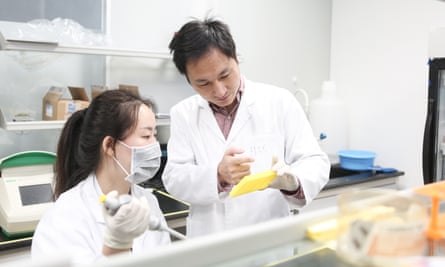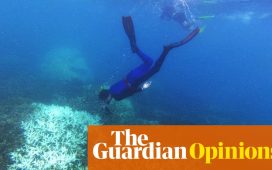Hong Kong has reportedly revoked a visa for the controversial gene therapy scientist He Jiankui less than a day after it was revealed he’d been granted one, despite having a criminal record in China for illegal medical practices.
Hong Kong immigration officials said his visa was rescinded and a criminal investigation launched into allegations He had lied on his application form, the South China Morning Post reported.
Hong Kong authorities said late Tuesday that it had voided the visa of an individual who “made false statements” in the application, adding that a criminal investigation had been launched. The statement did not name He, but referred to details of his case, according to Agence France-Presse.
It added that future applicants under the visa scheme must declare if they had a criminal record – a requirement that officials admitted did not exist when He submitted his forms.
Immigration officials and He have been contacted for comment.
He announced on social media over the weekend that he had been granted a visa under Hong Kong’s new talent scheme to attract international professionals to the city.
At a press briefing in Beijing on Tuesday, the disgraced scientist said he was in contact with universities in Hong Kong and planned to research gene therapy for rare hereditary diseases, the Associated Press reported.
In 2018 He revealed that he had edited the genes of twin girls, known as Lulu and Nana, before birth, to try to make them resistant to HIV. It later emerged that he had also edited the genes of a third baby. In 2019 a court in Shenzhen sentenced him to three years in prison and a 3m yuan (£360,320) fine for violating Chinese regulations on scientific research and practising medicine without a licence. The court also found He and two other researchers had fabricated ethical review documents.
He was widely condemned by scientists for unethical practices that involved risky procedures without fully informed consent from the families involved. He was fired by the Southern University of Science and Technology in Shenzhen in 2019.
Since He’s release from prison in April 2022 he has set up an independent laboratory in Beijing focusing on developing affordable therapies for rare genetic diseases, such as Duchenne muscular dystrophy.
He has also relaunched himself on to the international academic and media circuit. On 11 February he spoke at a bioethics event at the University of Kent, which was billed as “the first time that Dr He has agreed to interact with Chinese bioethicists and other Crispr [clustered regularly interspaced short palindromic repeats] scientists in a public event”. However, He was criticised for refusing to answer questions about his past work.
He has withdrawn from a planned appearance at the international summit on human genome editing in London in March, tweeting: “I feel that I am not ready to talk about my experience in the past 3 years.” At the press conference in Beijing on Tuesday, He also did not respond to questions from journalists.

Eben Kirksey, a professor of anthropology at the University of Oxford and author of a book about He’s 2018 experiment, said he was “really surprised” at He’s sudden recalcitrance, saying he had previously been candid in discussions about the ethics of his research.
Kirksey said He was “distracting everyone” from the ethical discussion that needed to be had over germline gene editing, adding there was “a real reputational risk” for scientists working with He.
On Tuesday, Chris Sun Yuk-han, Hong Kong’s labour and welfare secretary, said applicants to the territory’s talent scheme, which opened on 28 December, did not need to declare a criminal record. Following some backlash about He’s visa, Sun said late on Tuesday that the application process would immediately be tightened up.
Hong Kong is trying to lure international professionals in an attempt to recover economically from the pandemic and the loss of academics after the national security law was introduced in 2020. The number of academic staff who left Hong Kong’s public universities in 2021-22 was 30% more than the previous year, and the highest since the handover of the territory to China in 1997.








